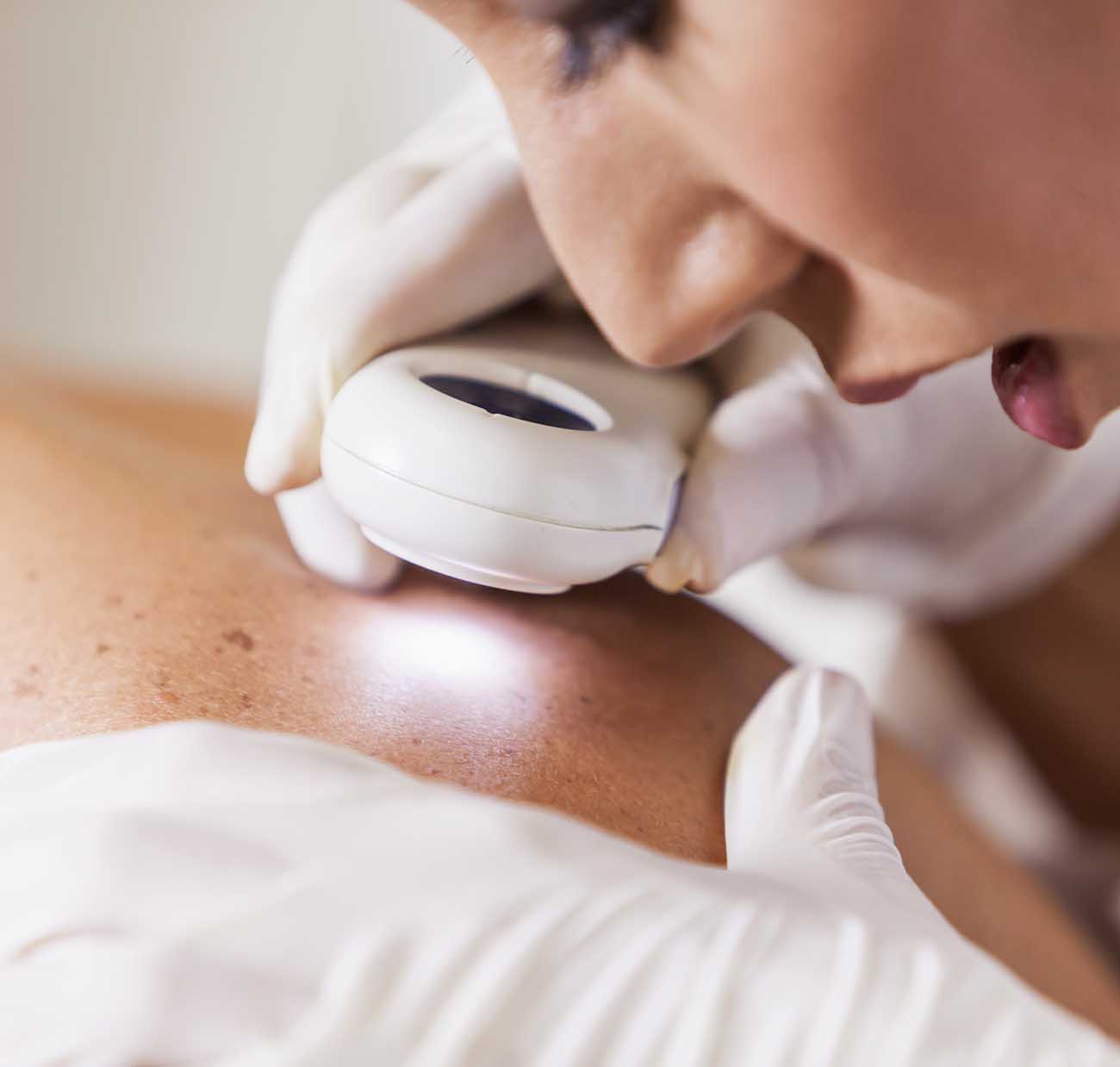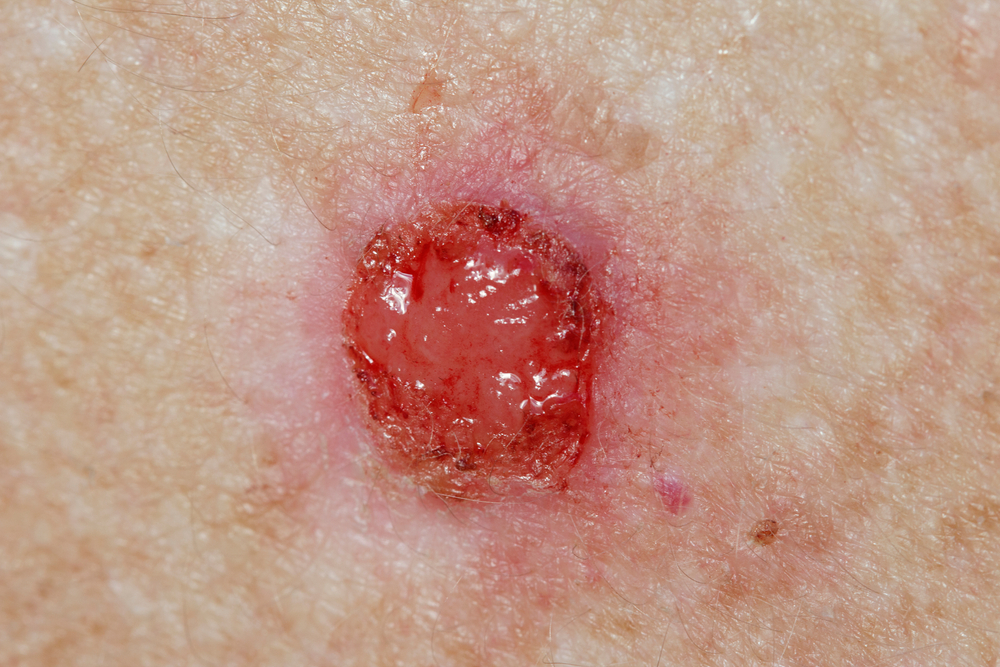Basal cell carcinoma
Basal cell carcinoma can damage skin, tissue and bone
Basal cell carcinoma is one of the most common causes of skin cancer. It arises from abnormal basal cells in the skin. Basal cells are situated within the skin. When old skin cells die, the basal cells produce new ones. The main cause of basal cell carcinoma is sun damage that occurred several decades earlier. People with fair skin are more at risk.
Basal cell carcinoma (BCC) grows where it is. If left untreated it will burrow into the skin and cause an ulcer. It does not spread. Surgical treatment is simple and curative and can be done in almost every case as a simple walk-in walk-out local anaesthetic procedure.


Consultation
- Detailed history of your skin concern
- Total skin examination
- Holistic assessment of your health
- Diagnosis
- Discussion of treatment options
- Personalised treatment plan
- Treatment
FAQs
BCC (basal cell carcinoma) tumours can grow and become dangerous; potentially destroying the skin, tissue and even bone. However, they rarely spread in the way other tumours do.
See answer

We would certainly advise you to at least have your tumour examined before you make any decision although BCC tends to grow slowly, it it is still harmful.
See answer

Due to the slow growth of BCC, chemotherapy is not used to treat it. In advanced cases, a more targeted therapy may be offered.
See answer

It depends on where your tumour is. If it’s near your eyes, or lips, it might be preferable to seek treatment. If you’ve had BCC for a long time, and there’s a chance it could have reached a more advanced stage, we urge you to arrange a consultation swiftly.
See answer

Minor surgery is required. Surgical excision removes the BCC tumour under local anaesthetic.
See answer

Within 3 to 6 weeks your wound should be fully healed, but the procedure is a walk in, walk out, same day appointment.
See answer



